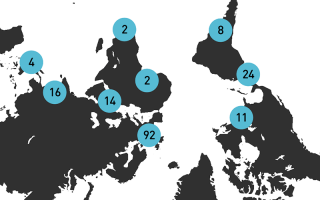I joined the MSc in Urban Economic Development (UED) after completing my undergraduate studies in Economics at King’s College London and working in a microfinance institution in the Philippines for a year. This latter experience compelled me to enter the field of urban studies. Living in poorly planned urban settings in the Philippines, and witnessing the devastating impacts of Typhoon Haiyan on highly vulnerable coastal cities have driven me to explore how economic solutions can contribute to urban wellbeing.
The UED course was an ideal fit with my career aspirations. The core classes brought economic analysis to city planning and management, and other learning opportunities within other departments at UCL provided the multi-disciplinary background that is necessary to achieve an integrated perspective for developing innovative economic strategies and policy advice for complex urban projects. A key appeal for me was the Disaster Risk Reduction class, although I did not have any academic background in the area, the class introduced key concepts related to the economics of urban resilience, which are now a daily part of my current role as a professional. Another major appeal was the field research in Ethiopia. Complementing theoretical knowledge with practical experience, and bridging the gap between classroom and real-world environments in the Global South have been invaluable steps to arrive well-equipped in the job market.
My first job after the UED was in the Economics department of the Greater London Authority (GLA), London’s municipal government. I arrived able to add value to my team’s work right from the start; most notably thanks to the UED’s ‘London Project’, a research piece conducted in collaboration with city officials from various public organisations in London. After a year at the GLA, I moved on to my current role in the City Economics team of Arup, where I work with the private sector, governments and their agencies, and voluntary and community organisations to advise on interventions across a range of sectors spanning from urban resilience, energy and transport systems to arts and culture.
Linkedin - https://www.linkedin.com/in/victor-frebault/
 Close
Close


